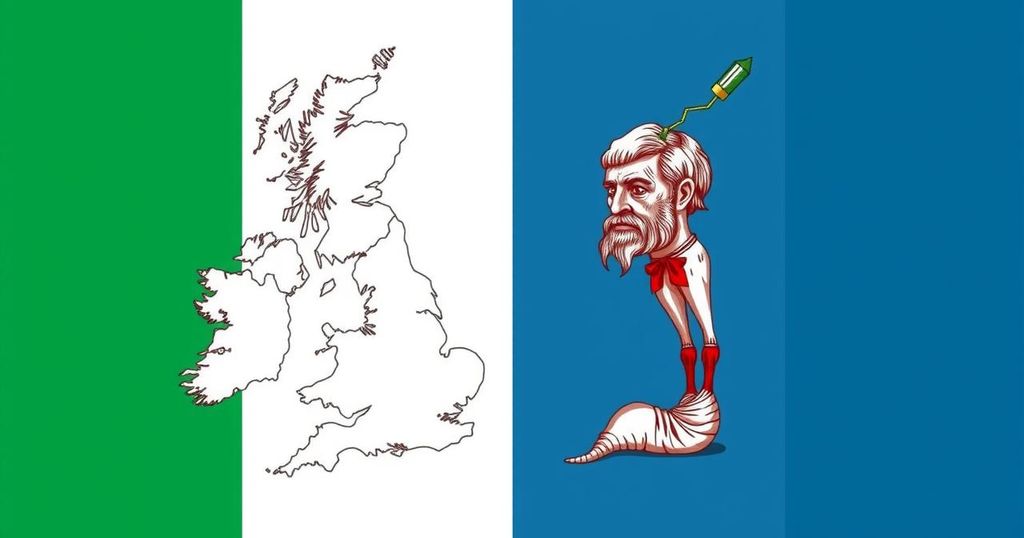Ireland’s Incumbent Parties Likely to Retain Power Amid Election Fragmentation

Ireland’s incumbent parties, Fine Gael and Fianna Fail, appear set to retain power after a fragmented election wherein voter discontent over economic issues was evident. As coalition negotiations begin, Sinn Fein’s political ambitions are hindered by opposition from the dominant parties. A complex electoral system and protracted counting process will determine the final government formation.
Following a fragmented national election, Ireland’s established political parties appear poised to maintain their grip on power, albeit with reduced support. The governing coalition of Fine Gael and Fianna Fail, alongside the opposition party Sinn Fein, is now engaged in intricate negotiations to form a new government amid a backdrop of voter dissatisfaction concerning economic challenges, particularly the housing crisis. The proportionate representation electoral system will prolong the counting process, with final results anticipated in the coming days.
Prime Minister Simon Harris, along with Fianna Fail leader Micheál Martin and Sinn Fein president Mary Lou McDonald, successfully secured their parliamentary positions in the election held on November 30, 2024. Despite the challenges faced, Fine Gael and Fianna Fail are likely to retain their coalition but will require alliances with smaller parties or independent legislators to achieve a governing majority.
While Sinn Fein aims for political prominence by promoting the reunification of the Republic of Ireland and Northern Ireland, it faces considerable opposition from both Fine Gael and Fianna Fail, who have publicly expressed unwillingness to enter a coalition with the party due to its historical connections to the Irish Republican Army. This position reflects ongoing tensions stemming from Northern Ireland’s violent past.
The electoral campaign, heavily influenced by economic issues, witnessed voters expressing their concerns about living costs and housing shortages. The dynamics of this election diverge from global trends where incumbent governments often fall in the face of discontent. The outcome of this election will be critical in shaping Ireland’s political landscape moving forward, as it grapples with pressing challenges amid a complex coalition-building process.
The article addresses the results of Ireland’s recent general election, highlighting the ongoing political dynamics within the country. Given its historical context, Fianna Fail and Fine Gael have been traditional center-right parties in Ireland, often engaging in coalition governance. This particular election was characterized by a fragmented voter base expressing discontent with economic issues such as the housing crisis, leading to discussions about potential alliances with smaller political entities. Sinn Fein, while a significant player, remains at a political impasse due to its contentious history.
In summary, the latest electoral results hint at a continuation of governance by the historical center-right parties, albeit with significant challenges ahead due to reduced voter trust and the necessity for coalition negotiations. The political landscape remains delicate as various interests will need representation to form a stable government. This election reflects the dynamic tension between historic allegiances and contemporary grievances within the Irish electorate that will influence future governance strategies.
Original Source: apnews.com








